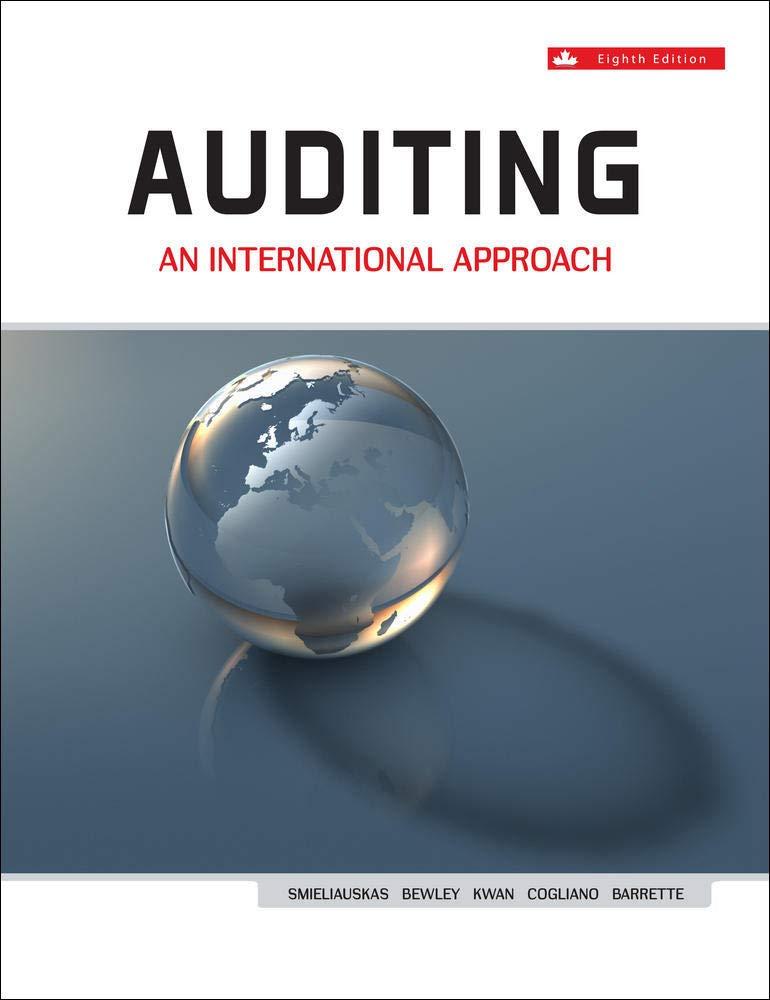Question
Having just graduated from UBC, you land a lucrative financial analyst position at a large publicly- traded firm in the U.S., called Floor-Mart. During your
Having just graduated from UBC, you land a lucrative financial analyst position at a large publicly- traded firm in the U.S., called Floor-Mart. During your first week on the job, the CEO stops by to welcome you onboard and learns that you are a big believer in measuring value in order to create value. Consequently, the CEO asks if you could:
1) Carry out a DCF analysis to estimate value per share. For this task you will have to:
a. Project revenues for the next two years
b. Convert the revenues into EBIT
c. Convert each years EBIT into FCFF
d. Calculate a terminal value
e. Discount the FCFFs and terminal value to PV using the WACC
f. From the PV of assets, find the PV of equity
g. Convert the PV of equity to value per share
2) Calculate how much EVA (Economic Value Added) the company generated last year. One way to do this is to subtract the capital charge from last years NOPAT.
3) Calculate how much MVA (Market Value Added) the firm has generated. Subtract invested capital from market value of the whole firm.
4) Calculate what the price per share would be if the firm was trading at a forward-looking EV/EBITDA multiple of 7, which the CEO considers an appropriate multiple in the industry at this time. Forward EBITDA x 7 leads to EV, which is value of the whole firm. You are looking for value of equity per share.
Both external and internal size-ups have recently been carried out by one of your colleagues, with the resulting assumptions included in the information below:
Floor-Marts debt is entirely in the form of bonds with a yield-to-maturity of 6.2%.
Government bonds currently yield:
2-Year 1.80%
5-Year 2.20%
10-Year 3.25%
30 Year 4.82%
The stock has a Beta of 1.4
Revenues are expected to grow at a rate of 3.5% for the next two years, then settle into a 3.0% growth rate indefinitely (note that this is also the terminal growth rate for free cash flows).
EBIT margins have averaged 6% for several years and are expected to remain the same.
Depreciation is expected to grow at a rate of 3.0% annually.
Working capital will increase at a rate of 2% of the increase in revenues.
CAPEX was $3,500 in 2017 and will increase at a rate of 3.2% annually.
The shares currently trade at $42.73
Step by Step Solution
There are 3 Steps involved in it
Step: 1

Get Instant Access to Expert-Tailored Solutions
See step-by-step solutions with expert insights and AI powered tools for academic success
Step: 2

Step: 3

Ace Your Homework with AI
Get the answers you need in no time with our AI-driven, step-by-step assistance
Get Started


